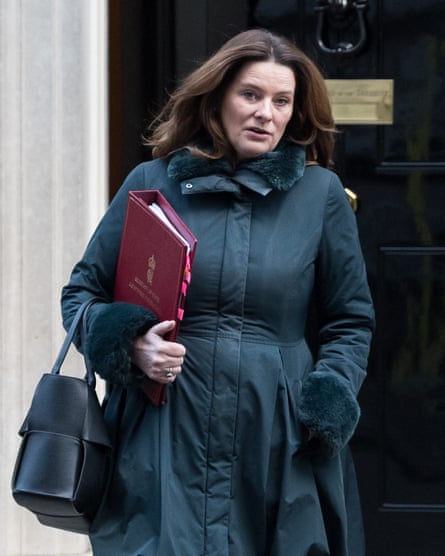Rishi Sunak is facing a cabinet revolt over plans to scrap a graduate visa scheme that allows overseas students to live and work in the UK for up to two years after graduation.
Under pressure from some on the right of his party to demonstrate that the Tories are tougher on immigration than Labour, Downing Street is considering further restricting or even ending the graduate scheme, which some believe can be used as a backdoor entry route to the UK.
The latest quarterly immigration figures will be released this week. The pending announcement has added to pressure on No 10 to defuse concerns over continuing high numbers with a tough new approach as a general election approaches.
But with university vice-chancellors warning that such a move could threaten the futures of their institutions and damage local economies, and businesses raising concerns about the effect on skills and their ability to attract overseas talent, several cabinet ministers are said to be opposing the move. Government sources say these include the education secretary, Gillian Keegan, the chancellor, Jeremy Hunt, and the foreign secretary, David Cameron.
A government insider told the Observer that Keegan would not support moves that would harm the sector. “Her job is to support the higher education sector, which benefits from international students coming to this country,” said the source.
Government insiders also said Hunt would oppose “any move that would be detrimental to the economy”, including blanket bans on international student visas. Lord Cameron is also understood to be opposed to limiting the number of international students and further damaging relationships with overseas universities. The UK’s exit from the EU has meant withdrawal from the bloc’s Erasmus programme, which has already had a serious effect in curbing international exchanges.

Sunak is now finding himself caught between the demands of rightwingers with one eye on the Tory leadership and Conservative moderates who fear the consequences of a lurch to the right on the party’s reputation and election chances.
Pressure on Sunak to act on student visas has come from potential future challengers for the party leadership, including the former home secretary Suella Braverman. A recent report by former Home Office minister Robert Jenrick, seen as another potential leadership contender, and Tory MP Neil O’Brien, for the Centre for Policy Studies, called for the abolition of the graduate route to a visa.
At the start of this year the government introduced tighter rules meaning that international students could no longer bring family members to this country unless they were on postgraduate research courses and courses with government-funded scholarships. This has already led to a drop in numbers.
Dr Michael Spence, president and provost of University College London, said further curbs on international student visas would be “an extraordinary act of national self-harm”.
“A single cohort of international students brings £37bn of economic benefit to the UK and this is directly felt by local businesses and communities in towns and cities in every part of the country,” he said.
“But the value of our international students is not just economic. These are people who take the brave step to travel thousands of miles around the world to get a world-class education in the UK. They bring their ideas and perspectives and build a profound connection with our country which lasts long after they leave.”
New research from Survation looking at the British public’s attitudes to proposed restrictions on international students shows that many parents believe it will lead to an increase in fees for UK students.
When asked to consider the potential impact of a reduction of international students, 50% said they believed this would lead to an increase in fees. Additionally, 50% stated there would be less diversity at universities, 47% mentioned local economies would suffer, and 40% indicated there would be fewer courses on offer.
after newsletter promotion
Dr Tim Bradshaw, chief executive of the Russell Group of universities, said: “The British public recognises the value of international students to their local economy, to our society and to our global standing – and it’s therefore no surprise that they overwhelmingly want to see the numbers of international students increase or remain.
“There is clearly no appetite for reducing international students. Moves to further curb international students would represent a big misjudgment of the public from the government, as well as running counter to plans to grow the economy.”
Last week, the government’s own team of independent advisers, the Migration Advisory Committee, found “no evidence” that the scheme was being abused in a report to ministers.
There are also concerns that limiting international student numbers will have a damaging effect on the government’s levelling up agenda.
Charlie Jeffery, vice-chancellor of York University, said: “At York, we recognise the vital role international students play in fostering a diverse and vibrant academic community. By attracting talented individuals from around the globe, we not only enhance the cultural richness of our region but also contribute significantly to its economic and social development.
“London Economics data shows that the net impact associated with international students in just one year in Yorkshire is £2.93bn. As we strive to level up opportunities across the UK, it is clear that cities outside of London, like York, benefit immensely from the global perspectives and innovative ideas brought by international students. Their presence is vital to our region’s growth and prosperity.”
Source: theguardian.com


